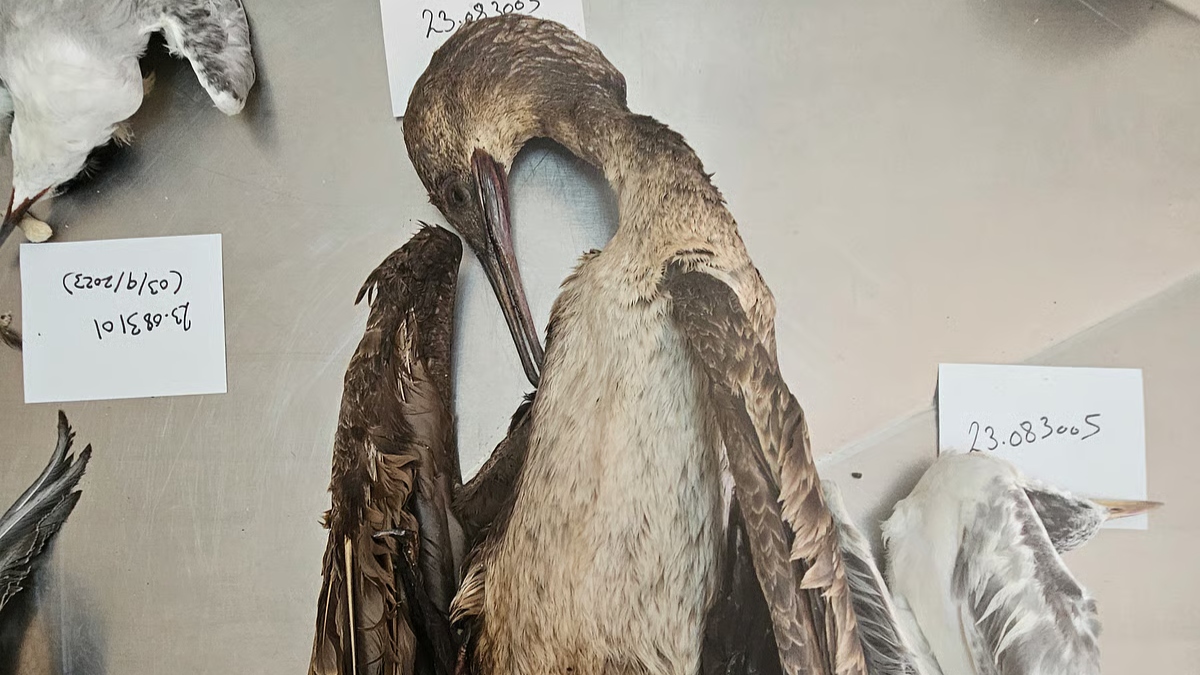A pioneering study in the UAE has uncovered alarming threats to seabird populations, with plastic waste, crude oil, and even laundry-related microfibers emerging as key causes of death.
The Environment and Protected Areas Authority (EPAA) in Sharjah released the findings in time for World Environment Day, marking a major milestone in regional marine conservation research. Published in the Marine Pollution Bulletin, the study is the first of its kind in the Middle East to document the ingestion of marine debris, microplastics, and oil residues by seabirds.
“This unprecedented scientific study in the region reaffirms our firm commitment to monitoring and documenting pressing environmental challenges,” said Hana Saif Al Suwaidi, Chairperson of the EPAA. She described the research as a “pioneering scientific accomplishment” that lays the groundwork for long-term tracking of marine pollution impacts.
Researchers analyzed the digestive systems of 478 seabirds from 17 species found dead along the Arabian Gulf and Gulf of Oman. The results revealed that 12.8% had ingested marine pollutants—primarily plastic polymers such as polyethylene. Black-headed gulls were among the most affected, and glass was also a commonly ingested material.
Juvenile large white-headed gulls were especially vulnerable to debris ingestion, underscoring the heightened risks faced by younger birds. In a closer analysis of 20 specimens, microfibers—largely linked to laundry wastewater—made up nearly 78% of all microplastics found. The presence of oil balls and fishing hooks further emphasized the scale of human-induced hazards.
Al Suwaidi emphasized that the study goes beyond research—it’s a rallying point for policy change, awareness campaigns, and more sustainable practices. “World Environment Day is not merely a celebration, but a global call,” she said, stressing the need for action to safeguard biodiversity and marine ecosystems.
The study was conducted under the Sharjah Strandings Response Programme, which plays a key role in marine life rescue and environmental education efforts across the emirate.






